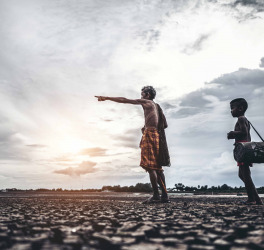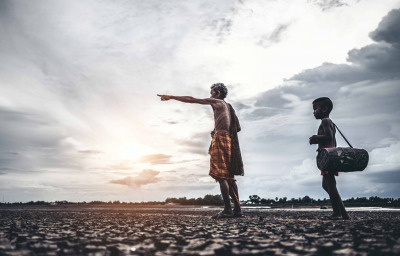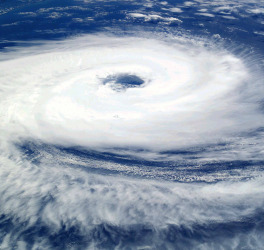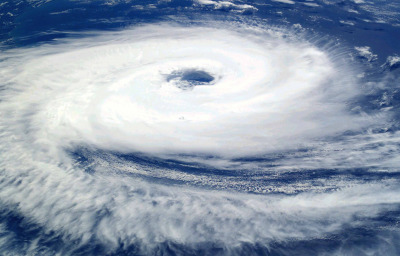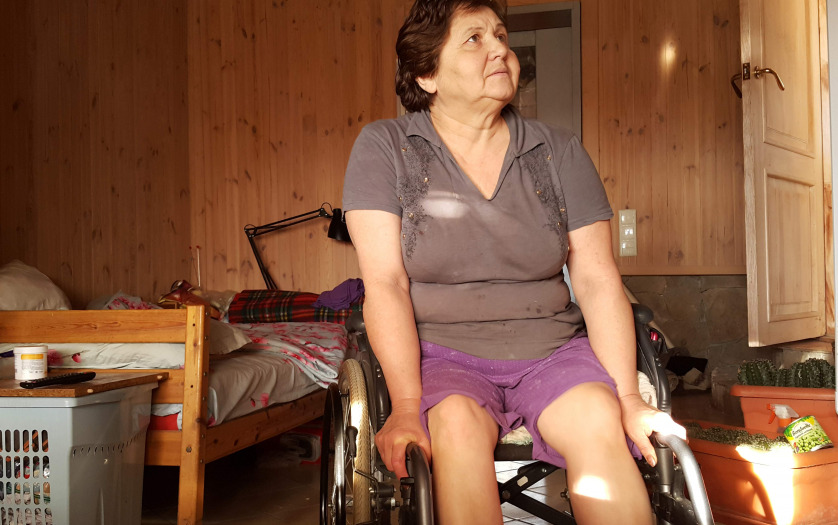
The Human Rights Council (HRC) this morning held a panel discussion on the human rights of older persons in the context of climate change. It also concluded its interactive dialogue with the Special Rapporteur on trafficking in persons, especially women and children.
In her opening remarks, Michelle Bachelet, United Nations High Commissioner for Human Rights, noted that population ageing and climate change had significant implications for human rights. By the year 2050, it was estimated that humanity would include 1.5 billion people aged 65 and above. And by 2050, if greenhouse gas emissions had not been reduced to net zero, global warming would exceed 1.5° Celsius. Ageism contributed to older persons’ vulnerability to climate change. The COVID-19 crisis had demonstrated how age-related discrimination created and exacerbated the poverty and marginalisation of older people, amplifying human rights risks.
Mami Mizutori, Special Representative of the Secretary-General for Disaster Risk Reduction, said it was incumbent on governments, local governments, and national disaster management agencies to ensure that national strategies for disaster risk reduction and others in development made adequate provision for the inclusion of older persons. Apart from ensuring their protection and safety, there was also a need to recognise the role they could play in building a community’s resilience to disasters. The pandemic must serve as a wake-up call on human rights issues that were likely to become increasingly common as the climate emergency worsened.
Claudia Mahler, Independent Expert on the enjoyment of all human rights by older persons, said climate change, which was man-made, posed specific challenges for the heterogeneous group of older persons. Because of the interaction of ageism, age discrimination and climate change, they could be particularly disadvantaged and discriminated against. Age was still missing as a specific ground of discrimination in the current international human rights system.
Saleemul Huq, Director of the International Centre for Climate Change and Development, said he was speaking from one of the most vulnerable countries in the world, Bangladesh, with 170 million people living in less than 150 thousand square kilometers. Some of the most vulnerable people were obviously the poorest people living in the most hazardous and vulnerable locations. But within them, some were more affected: women more than men, children more than adults, elderly more than able-bodied adults and so on – so forth.
Katharina Rall, Senior Environment Researcher, Human Rights Watch, said those already marginalised were often most impacted by climate change. Last year, Human Rights Watch had documented how indigenous peoples in Canada, including many older people, were struggling to access food as a result of rising temperatures. Governments were still not doing enough to mitigate climate change and to help those most impacted populations adapt to it. There was robust data on the number of older people among those who had died from heatwaves. However, health impacts of heat on older people were much less documented or monitored.
Handaine Mohamed, Expert on issues of climate change and indigenous peoples in Africa, said the evolution of climate change and of the elderly followed the same rules. Global warming, natural disasters, and increasing ocean waters kept increasing, and in front of them the rate of the elderly kept increasing. This symmetry between climate change and the elderly posed a huge responsibility to the international community, especially the Human Rights Council, a responsibility to ensure that the effects of climate change do not infect the rights of this category of the world population.
In the ensuing discussion, speakers agreed that climate change was one of the most fundamental threats to the environment, and thus to human rights. Older people were often affected disproportionately and had fewer capacities to respond to climate change. Speakers emphasised that nowhere on Earth could they find better witnesses to the effects of climate change than older persons, particularly older indigenous persons, expressing concern over age bias, ageism and the backsliding on indigenous rights. Over 400 civil society and indigenous peoples’ organizations had previously called for the creation of a position of Special Rapporteur on climate change.



